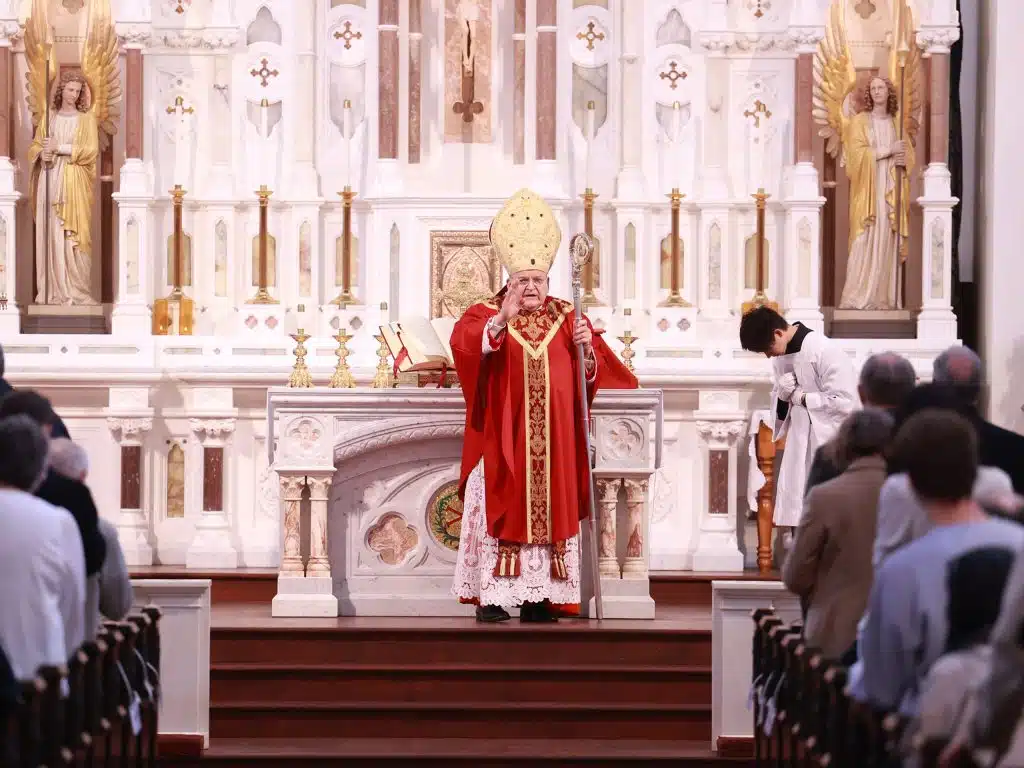While working as personal stylists, local Catholics Mary Sheehan Warren and Mary Anne Wahle combed through hundreds of closets, searched through racks of clothing and ultimately helped their clients assemble practical, flattering, fabulous wardrobes. As they sifted through skirts, they came to realize that the quest for style often leaves shoppers the unhappy owners of too much stuff. It’s one of the things that inspired Sheehan Warren, Wahle and other like-minded fashionistas to form the Fashion Intelligence Project.
The fledgling organization hopes to be a network for fashion industry professionals who educate clients, colleagues and friends about the social impacts of fashion choices. They’re guided by four questions — do the clothes dignify the person wearing them? Are the items truly needed? Were they produced in a way that is fair to the workers? Was the item a product of a system that is environmentally and economically sustainable?
In addition to their clients’ dissatisfaction, an international tragedy led the women to take a hard look at the fashion industry. In the spring of 2013, a garment factory in Bangladesh collapsed, killing more than 1,100 workers. “We were all deeply affected,” said Sheehan Warren, a parishioner of Holy Spirit Church in Annandale.
Their upcoming workshop at the Yuma Center in Washington Sept. 30 is focused on thoughtful consumption. People may buy too many clothes, but oftentimes it’s not the quantity but the quality. The demand for cheap clothing begets poorly made items that don’t last. It also pressures manufacturers to pay low wages and cover up the negative environmental impacts of their production.
“It boggles your mind,” said Nella Hennessy about the amount of cheap clothing available in malls today. Hennessey, a parishioner of St. Joseph Church in Herndon, worked 10 years in New York City for Valentino Garavani and now works at a non-profit. “You see the lines of young girls, young guys just consuming and there has to be an end. All these clothes end up in a heap somewhere.”
Reading “Laudato Si’, on Care for Our Common Home” and other writings of Pope Francis and past popes helped the women realize the importance of factoring environmental consequences into fashion consumption. “We believe in sustainability for the sake of the human person,” said Sheehan Warren. “The planet was created for the human person — part of God’s gift to His creation.”
One part of changing shopping habits for the better is tuning out advertisements. As an adjunct professor teaching fashion marketing at The Catholic University of America in Washington, Sheehan Warren sees the need for consumers to understand the often harmful effects of advertising. One problem in particular is hypersexualization — “that’s the undercurrent that’s being sold to women,” said Wahle, a parishioner of St. Agnes Church in Arlington.
“(Advertising is) never truthful and it creates a myth,” said Hennessey. “It’s gotten to the point where there’s no more integrity, and it’s up to the consumer to be smart.”
That means being mindful of where you buy clothes and how often. Buying higher quality clothing less frequently is a good way to slow the system down, said Sheehan Warren. “The only way the problem is going to be solved is in the hands of the consumer,” she said.
“It takes time to unlearn that behavior, to change your own habits,” said Wahle, but the group believes even small steps can stop the culture of waste. “The statistic that’s floating around is that people wear a garment four times before it’s disposed of,” she said.
In addition to sharing practical tips, the Fashion Intelligence Project workshop will host a professional clothing drive for Success in Style, which coaches men and women looking for employment and provides them with suits and accessories. The charity embodies the person-centered philosophy the Fashion Intelligence Project wants to promote, said Sheehan Warren.
“We see ourselves as not only educating but telling the world about all these great organizations that are already doing what we believe,” she said.


